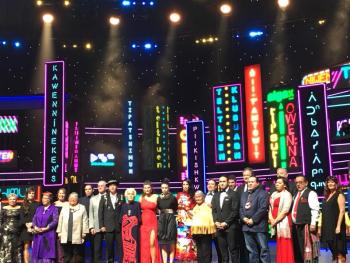Image Caption
The Indspire Awards (formerly the National Aboriginal Achievement Awards) celebrated 25 years of shining a light on Aboriginal achievement with a gala event held in Winnipeg last night, March 23.
Over the last quarter century, Indspire has honored 350 First Nations, Inuit and Métis individuals who have blazed a path in a variety of categories, and this year’s awards recipients are no exception.
Dr. Gloria Cranmer Webster
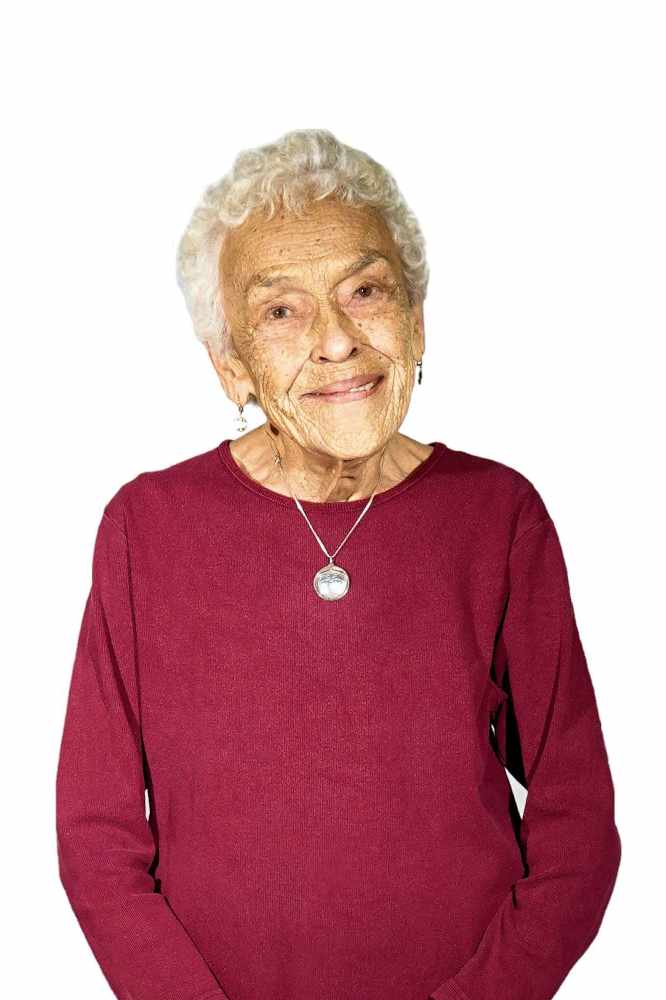
Dr. Gloria Cranmer Webster is this year’s Lifetime Achievement recipient for her work in cultural reclamation, artifact repatriation and language revitalization.
In 1921 at a potlatch ceremony hosted by her father, Chief Dan Cranmer, the federal government confiscated masks, regalia and other treasures, now known as the Potlatch Collection. As assistant curator at UBC’s Museum of Anthropology, Cranmer Webster was asked to help repatriate the collection. Over time, the National Museum of History agreed to return the collection and the return of those pieces meant the return of pieces of Kwakwaka’wakw history.
In 1975, Cranmer Webster returned to her community in Alert Bay, B.C, to lead the design and construction of the U’mista Cultural Centre, the museum that would house the Potlatch Collection.
Cranmer Webster is also a language keeper. At a time when the Kwak’wala language was on the verge of extinction, Cranmer Webster, along with the Old People and Dr. J. Powell, a linguist from the University of British Columbia, developed an orthography and a series of 12 language books, which helped preserve the language and culture.
There are three youth recipients of this year’s Inspire Awards, including the first Inuk heart surgeon.
Dr. Donna May Kimmaliardjuk
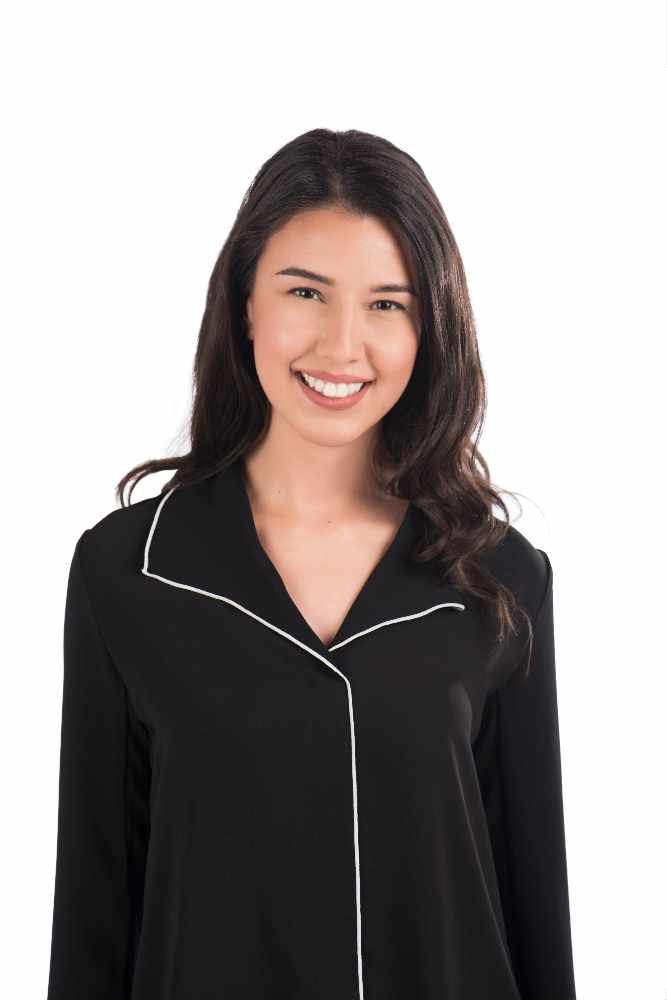
Dr. Donna May Kimmaliardjuk is in her fourth year of a six-year residency program at the University of Ottawa Heart Institute. She was accepted in 2014 as one of only 10 cardiac surgery residents in all of Canada.
In 2016, Kimmaliardjuk joined the National Aboriginal Council on HIV/AIDS as the Inuit representative, where she provides the council with a unique and crucial perspective combining her knowledge of medicine and Inuit culture.
While earning a Bachelor of Sciences Honours at Queen’s University, Kimmaliardjuk served as president of the Queen’s Native Students’ Association for two years and was a student representative on the Queen’s University Aboriginal Council.
Tracie Léost

At just 19 years old, Tracie Léost, Métis from St. Laurent, is a leader, activist, and track and field athlete. In 2014, won three bronze medals under the Métis flag at the North American Indigenous Games in Regina.
In 2015, after learning of the disappearance of Indigenous women and feeling a growing sense of frustration about the lack of political will to launch an inquiry into the issue, she set out on a four-day 115 km run to raise awareness. She raised over $6,000 for the Families First Foundation and garnered international attention.
Léost is now in her second year in the Indigenous Social Work Program at the University of Regina.
Ashley Callingbull
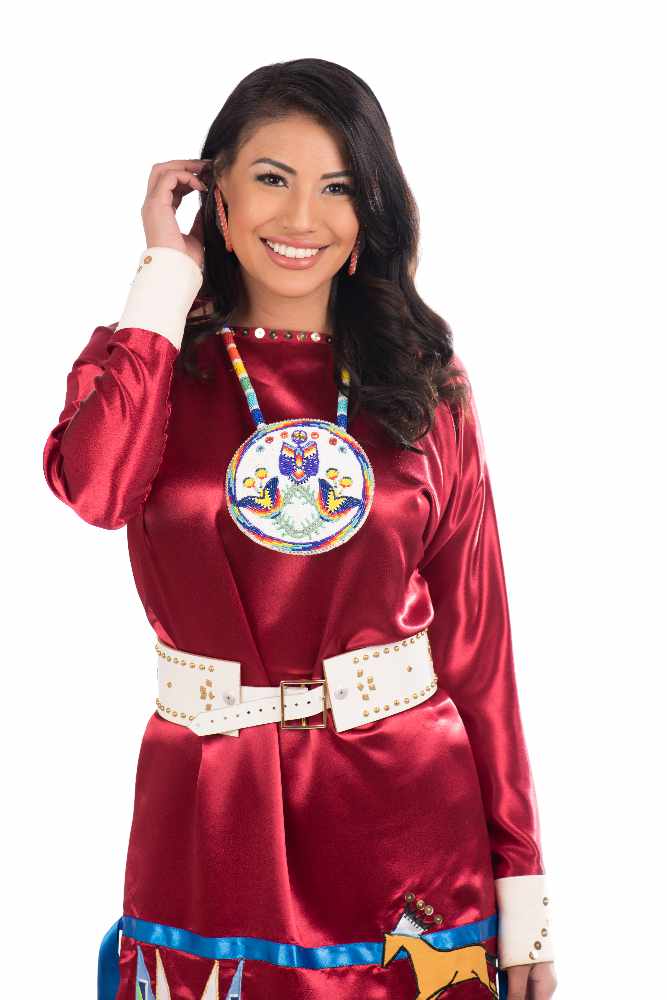
In 2015, Ashley Callingbull of the Enoch Cree Nation, Alta. became the first Canadian and first First Nations woman to be crowned Mrs. Universe. She used her platform to be a voice for Indigenous issues, and specifically, the issue of missing and murdered Indigenous women and girls.
She has shared her own story of using her Cree culture to overcome childhood physical and sexual abuse to show young people going through the same thing that there is hope.
In addition to her work in the community, she is an accomplished actor, appearing on APTN’s Blackstone, was part of the first First Nations team on The Amazing Race Canada, and is a spokesperson and model for the Nike N7 organization.
Other awards were presented in the categories of Health, Public Service, Education, Business and Commerce, Culture, Heritage and Spirituality, Arts, Sports and Law and Justice.
Paul Chartrand


Paul Chartrand, recipient in the Law and Justice category, is senior counsel with DDWest LLP. The now retired professor of Law from St. Laurent, Man. was appointed one of the seven commissioners to Canada’s Royal Commission on Aboriginal Peoples in 1991. He also served as a commissioner on Manitoba’s Aboriginal Justice Implementation Commission (1999-2001.
For nearly three decades, Chartrand has been a representative and an advisor to Indigenous organizations in the process of the adoption of the United Nations Declaration on the Rights of Indigenous Peoples. He was a senior participant in Canada’s First Ministers’ Conferences on Aboriginal Constitutional Reform in the 1980s.
Dr. Evelyn Voyageur

In the Health category is award recipient Dr. Evelyn Voyageur, a fluent speaker of Kwakwala and a matriarch in the Kwakwaka’wakw culture and traditions. She has dedicated her life to improving the health of Indigenous peoples through her more than five decades in the nursing profession. In 2003 Voyageur became the first Indigenous nurse to receive Health Canada’s First Nations and Inuit Health Branch Award of Excellence in Nursing.
Voyageur is bringing back the holistic way of looking at health in First Nations communities by integrating spiritual, emotional, physical, and mental health in her work. She has co-authored a number of publications on cultural safety and nursing. She was instrumental in the development of A’eka-lixl, a community-led health initiative where culture is the foundation of wellness in Wuikinuxv First Nation and D’zawada’enuxv First Nation.
Since 1980, she has been active in the Canadian Indigenous Nurses Association, and was its president from 2010-2012. She also founded the Native and Inuit Nurses Association of British Columbia in the early 1980s to help education those who work with First Nations communities.
Nicole Bourque-Bouchier
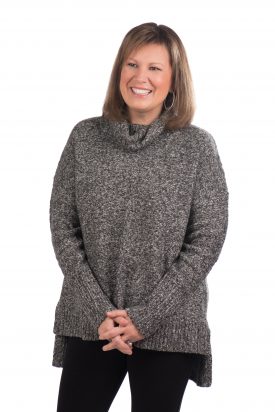
The Business and Commerce recipient is Nicole Bourque-Bouchier of Mikisew Cree First Nation, Alta. She is co-owner and CEO of The Bouchier Group, one of Alberta’s largest Indigenous-owned companies. In 2015 Bourque-Bouchier was named one of Canada’s Top 100 Most Powerful Women.
Since 2004, Bourque-Bouchier has grown the business from just 35 employees and 20 pieces of equipment to its current size of more than 1000 employees and more than 400 pieces of equipment.
In 2013, she spearheaded an ad series called Paving Pathways to Success, Applauding Aboriginal Women in Business, where eight local women were recognized for adding value and awareness to Indigenous women’s economic security in the region.
Theland Kicknosway
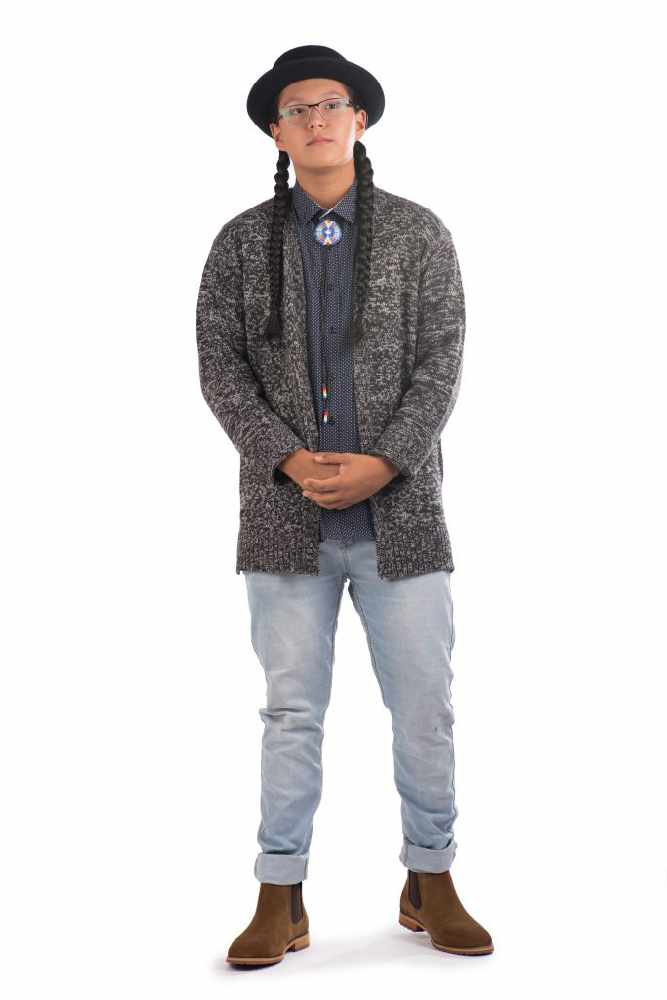
From Walpole Island Bkejwanong Territory, Ont., Theland Kicknosway, is an Indspire Award recipient in the Culture, Heritage and Spirituality category. At 14 years old, he is an activist, a role model, and an educator.
In Grade 3, Kicknosway wrote a letter to his school explaining why an annual powwow would be a teaching opportunity for the school and community. Century Public School celebrated its fourth annual powwow in 2017.
Kicknosway has taught more than 1,500 Indigenous and non-Indigenous people about the realities of Indigenous youth in Canada through KAIROS, and is an active facilitator of the KAIROS Blanket Exercise where he educates others about Indigenous culture and history. He also offers a round dance and teachings to LGBTQ2S youth at the Canadian Centre for Gender and Sexual Diversity.
In 2017, he completed his third annual 130 km run from Ottawa to Kitigan Zibi in partnership with Families of Sisters in Spirit to raise awareness for the children of missing and murdered Indigenous women.
Dr. Mike DeGagné
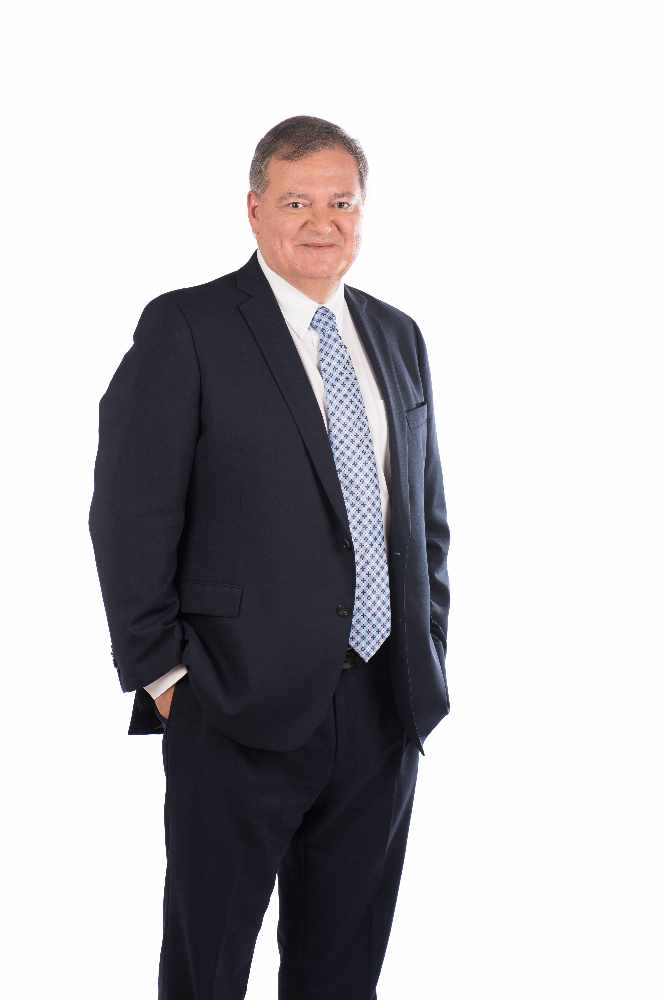
Dr. Mike DeGagné is president and vice chancellor of Nipissing University. From Animakee Wa Zhing #37, Ont., DeGagne is the recipient in the Public Service category, with over 25 years of leadership experience. He was an executive in the federal public service, serving with Health Canada, and Indian and Northern Affairs Canada. His career began in the addictions field, and continued to comprehensive claims negotiation.
In 1998, Dr. DeGagné became the founding executive director of the Aboriginal Healing Foundation. In 2014, DeGagné was appointed a Member of the Order of Canada, Canada’s highest civilian honour. He was recognized for his support of residential school survivors and First Nations communities, notably as the head of the Aboriginal Healing Foundation.
Dr. Lorna Wanosts’a7 Williams
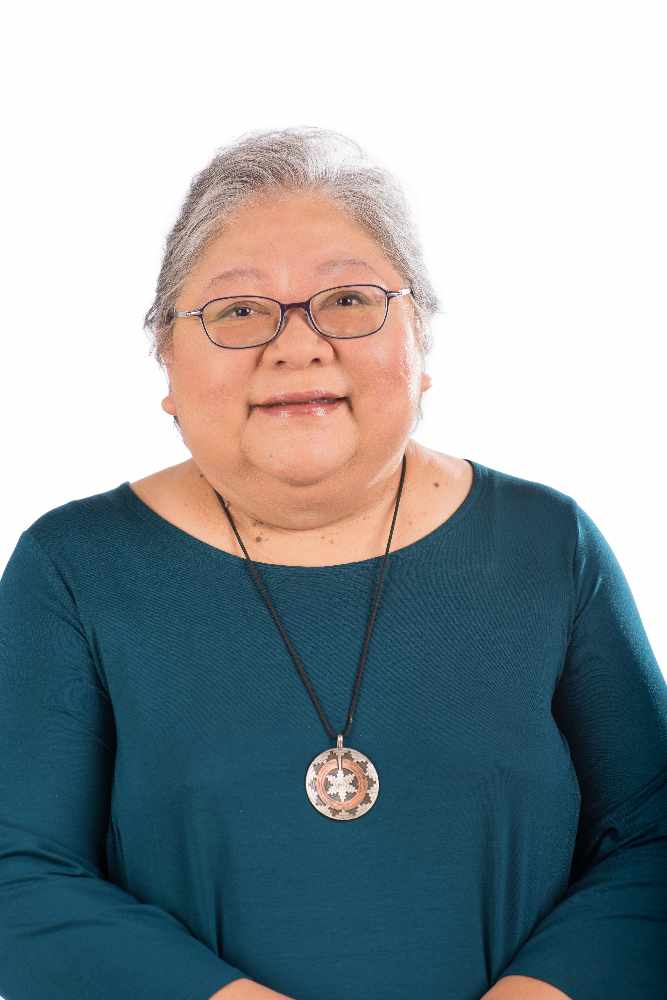
The recipient in the Education category is Dr. Lorna Wanosts’a7 Williams, professor emerita of Indigenous Education, Curriculum and Instruction at the University of Victoria and Canada Research Chair in Education and Linguistics.
Williams built her career on the principle that quality education for Indigenous children must be characterized by strong cultural teachings alongside a Euro-Western education.
She’s helped to develop the writing system for Lil’wat and co-authored the first curriculum and learning resources for teachers to teach the language in school. These materials continue to be used to teach today.
In 1973, Wanosts’a7 was instrumental in opening Mount Currie’s band-controlled school, only the second First Nations community in Canada to do so. The school delivered an innovative curriculum including Lil’wat and Euro-Canadian knowledge, history, and values, with instruction given in both Lil’wat and English. Each course was carefully negotiated to ensure that they did not colonize Lil’wat children.
Kye7e Cecilia DeRose
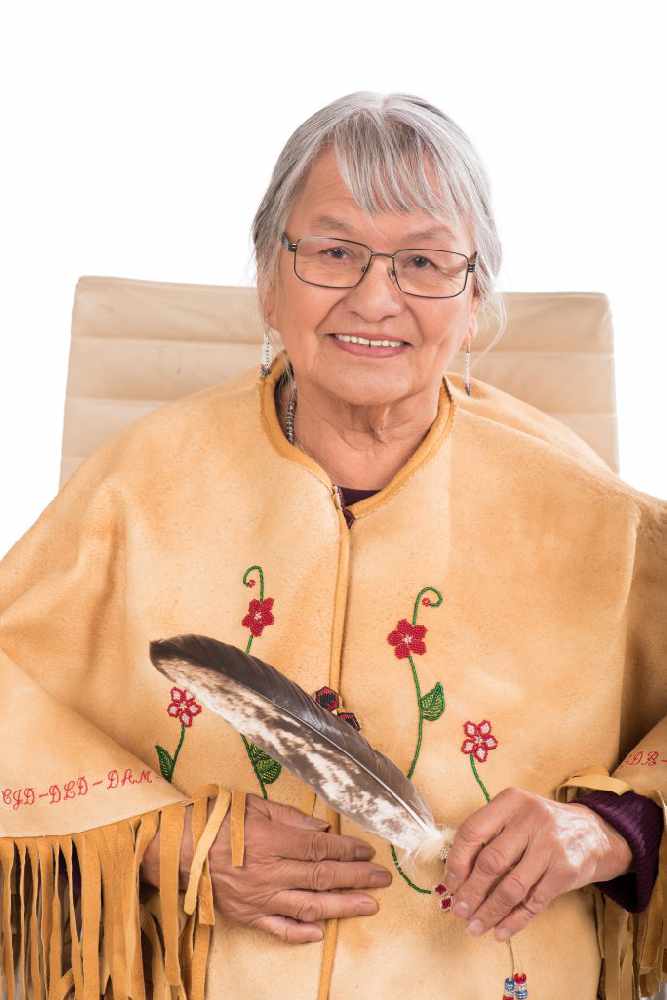
Also in the Culture, Heritage and Spirituality category is recipient Kye7e Cecilia DeRose of Secwepemc Nation, B.C. She is a champion of language revitalization, teaching Secwepemctsin to young children, elementary and high school students. DeRose also helped develop university Indigenous language programs and she has logged 300 hours in an immersion program with a language apprentice to keep Secwepemctsin alive.
In the early 1980s, DeRose sat on the Katie Ross Inquiry in Williams Lake, which recommended that interpreters be provided to Indigenous people and that public servants be provided cross-cultural training. She took it upon herself to implement the recommendations by taking the interpreter course and being available to interpret and provide cross-cultural training for the hospital, RCMP, and courts.
DeRose recently created a Hide Tanning Kit and Instruction Book for the Northern Shuswap Tribal Council and has assisted in developing and teaching a course on Secwepemc ethnobotany.
Greg Hill

In the Arts category is recipient Greg Hill, Kanyen’kehaka of Six Nations of the Grand River Territory, Ont.
Hill is the first Indigenous curator at the National Gallery of Canada. He is currently the Audain Senior Curator of Indigenous Art.
In 2007, Hill became the inaugural Audain Curator of Indigenous Art and head of the Department of Indigenous Art. Beginning his career at the gallery in 2000 as curatorial assistant for Canadian Art, then assistant curator, Contemporary Art in 2002, he has been dedicated to increasing both the collection and display of Indigenous art at the National Gallery of Canada ever since.
An artist himself, Hill has been exhibiting his work publicly since 1989 with more than 75 exhibitions to date. Exploring aspects of colonialism, nationalism, and concepts of place and community through the lens of his Kanyen’kehaka ancestry his work can be found in public collections in Canada and private collections in Canada and internationally.
Michael Linklater

Michael Linklater, the recipient in the Sports category, started playing basketball at age 12 and is now the top-ranked three-on-three basketball players in all of the Americas. In 2010, he led the University of Saskatchewan Huskies basketball team to their first CIS national championship.
In November 2017, he played with Team Saskatoon in the International Basketball Federation’s 3×3 World Tour Final. They were the only non-European team in the tournament.
Perhaps even more impressive than Michael’s athleticism is his commitment to being a positive role model for Indigenous and non-Indigenous youth. After his historic win with the Huskies, he took the W.P. McGee Trophy to Saskatchewan high schools to speak to and inspire high school students. He is now the owner and head coach of Prime Basketball Development, which teaches young basketball players how to become champions on and off the court. Through Prime Basketball Development, he also travels to First Nations communities and hosts individual and team development clinics.
As a Cree kid from Thunderchild First Nation, Sask., Michael was bullied for his braids, so when his sons suffered the same racism, he started an international movement called Boys with Braids to encourage Indigenous youth to continue growing their hair and to educate the general public, about the cultural significance of long hair for Indigenous men.
The show will be broadcast at a later date on APTN and CBC so watch those channels for details.

